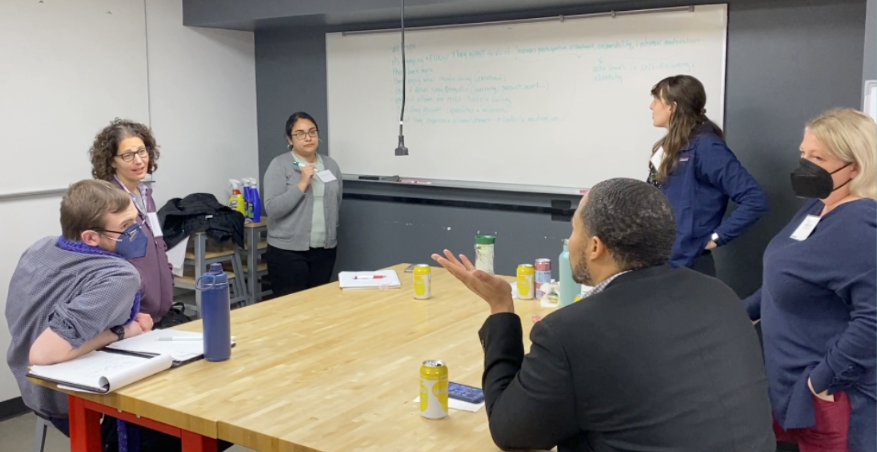Collab Lab 51 attendees explored the hopes and fears attendees commonly express having when it comes to letting students drive the issues that are the focus of their learning.
What do we hope for when we offer students the opportunity to pursue issues they are passionate about?
What fears might hold us back from doing so?
Hopes
Across the discussion groups we heard a number of common themes among the hopes that were expressed — that students feel heard, they are motivated and engaged in work that is meaningful to them, they have the opportunity to discover what it is that they do care about, that the work allows them to build the skills, confidence, and empathy to take on more complex challenges.
We also heard hopes for what that process could look like — that students have a chance to iterate and learn from missteps along the way, that we are able to design and support project based learning experience effectively, with scaffolding in place that allows students to take on the work, that teachers are equipped and supported as they do this work with students. The overarching paradigm for participants is that student driven issues would drive the process of project based learning: allowing students to discover their passions and to let those passions drive their education.
Fears
Moving forward to create opportunities for student driven work won’t happen if we don’t recognize and address the fears that hold us back as teachers.
Chief among those is that a lack of structure on an open ended project could lead to chaos, with some students left behind. Our participants also worry school or district leadership won’t recognize what’s going on in the classroom as productive learning, that it deviates from curriculum, that we won’t hit standards, and don’t have the right tools to evaluate student learning progress. Other fears center on the challenges we might offer students — what if the topic fails to engage them, we don’t have the time or support to pull it off, or are blocked by competing curriculum demands.
Participants also noted fears students themselves might have — how they will know if they are making progress, that they won’t get “the right answer”, that it feels weird to take on work that is by nature open-ended.
Next Steps
Our final question of the evening focused on what one might do in the next 30 days to push things forward. For our participants, the key to moving forward is building the support to take some risks and align resources that can both support and inspire students in their work. That’s the hard work that teachers find difficult to navigate individually.
The inspirEd Community recently established a Collab Lab group to explore these and other topics in a community setting. Consider joining the Community if this sounds like something that could help you in your teaching.
Acknowledgements
We are especially grateful to our featured participants for the experience and insight they brought to the discussion:
- Leslie Fee – Talent Manager – Development, J.W. Speaker
- Clintel Hasan – Strategic Initiatives Manager, Milwaukee Succeeds, GMF
- Maria Hamidu – High School Success Project Coordinator, Milwaukee Succeeds, GMF
- Adam Hengel – Coordinator of Instructional Services, West Allis/West Milwaukee School District
- Chad Johnson – CEO and Founder of Tip-a-Script, Milwaukee
Thanks again to MSOE’s STEM Center for hosting our Collab Lab series this season.


